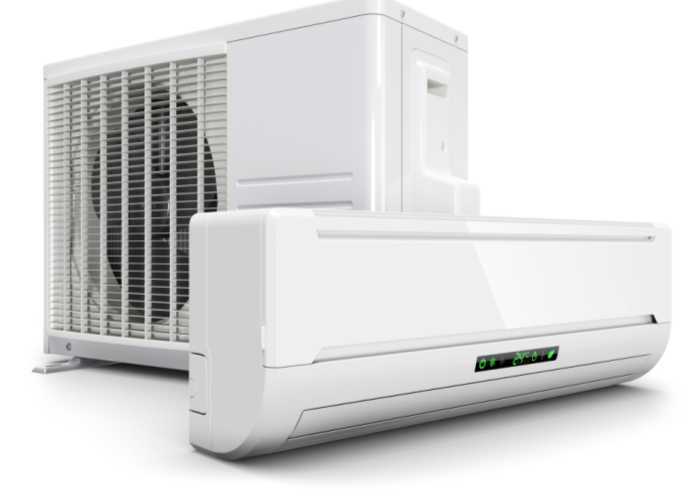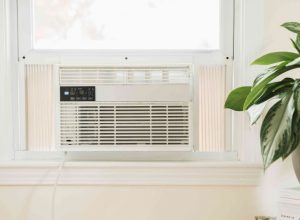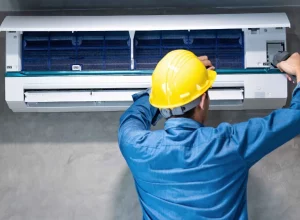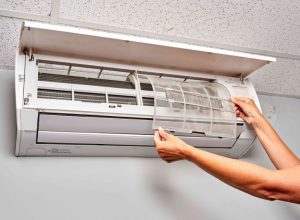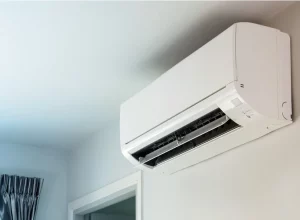Contents
Understanding Air Conditioning Systems
Air conditioning systems have become an essential part of modern living, providing relief from heat and enhancing comfort in residential and commercial spaces. When choosing an air conditioning system, it is crucial to understand the differences between Central, Split, and Portable AC units to find the one that best fits your needs.
Central Air Conditioning Systems
Central AC units are designed to cool an entire home using a centralized system. They consist of an outdoor compressor unit and an indoor air handler connected by ducts. Here are some key features:
- Cooling Capacity: Central AC units are typically rated in tons, with one ton being capable of cooling approximately 400 to 600 square feet.
- Ductwork: These systems require existing ductwork or the installation of new ducts, which makes them more suitable for homes designed with forced air systems.
- Automation: Many central AC systems come with smart thermostats, allowing for programmable cooling schedules and efficient energy use.
Pros:
- Even cooling distribution throughout the home.
- Quieter operation compared to other systems since the noisy components are placed outside.
- Higher energy efficiency if installed correctly.
Cons:
- Higher installation and maintenance costs, especially if ductwork is needed.
- Less flexible for cooling specific areas of the home when compared to split or portable units.
Split Air Conditioning Systems
Split AC units comprise two main components: an outdoor condenser and indoor air handling units. They are more versatile and can cool specific areas or rooms independently.
- Types: Available in single-zone and multi-zone configurations, making them suitable for various applications.
- No Ductwork Required: Many split systems do not require ducting, which simplifies installation and is ideal for homes without ducts.
- Energy Efficiency: Split systems often feature inverter technology, which adjusts the compressor speed based on your cooling needs, enhancing energy savings.
Pros:
- Targeted cooling for specific rooms, providing comfort exactly where needed.
- Generally quieter operation compared to window units.
- More energy-efficient, especially with inverter models.
Cons:
- Higher initial cost compared to window units and portable ACs.
- Installation may involve wall penetrations for the interconnecting tubing.
Portable Air Conditioning Systems
Portable AC units offer a flexible solution for cooling smaller areas without the need for permanent installation. They come with wheels, allowing for easy mobility from room to room.
- Ease of Installation: Portable ACs require minimal setup; typically just a power outlet and a window adapter for exhaust.
- Cooling Area: Best suited for smaller spaces, usually effective in areas around 200-500 square feet.
- Affordability: Generally more affordable upfront compared to central and split systems.
Pros:
- Flexible cooling; can easily be moved to different rooms.
- No installation costs associated with ducting or professional setup.
Cons:
- Less energy-efficient when compared to central or split systems, often leading to higher electricity costs.
- Can be noisier than other systems, as all components are contained within a single unit.
- Exhaust hose must be vented outside, which can be cumbersome in certain setups.
Comparison Table
| Feature | Central AC | Split AC | Portable AC |
|---|---|---|---|
| Cooling Capacity | Whole home | Specific rooms/zones | Small spaces |
| Ductwork Required | Yes | No | No |
| Installation Cost | High | Moderate | Low |
| Energy Efficiency | High | High (especially inverter models) | Moderate |
| Noise Level | Low (outdoor unit) | Low (indoor units) | High |
Choosing the Right System
When deciding between Central, Split, and Portable AC systems, consider the following factors:
- Size of the Area: Central AC is best for large homes, while portable units are ideal for small spaces.
- Budget: Assess your budget for both initial purchase and ongoing energy costs.
- Flexibility: If you want to cool different rooms independently, a split system may be best.
- Existing Infrastructure: If your home has existing ductwork, a central system could be more feasible.
Understanding the advantages and limitations of each air conditioning system will empower you to make an informed decision in selecting the ideal solution for your cooling needs.
